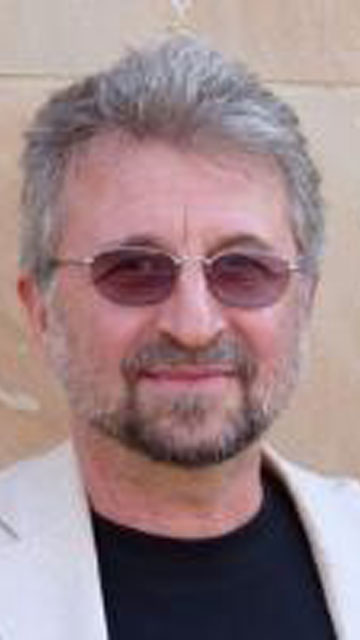
The Unit for the Humanities at Rhodes University (UHURU) will host one of South Africa’s most potent contributors to the analysis of modern politics, Prof Achille Mbembe. He will be delivering a public lecture on Wednesday (6 August 2014) entitled: "Non-racialism and the New Native Question in South Africa"
“Prof Mbembe is one of the few intellectuals in South Africa who is deeply familiar with modern social theory and philosophy, particularly with what is termed ‘continental philosophy’. He was educated in France and publishes regularly in that country,” said the Director of UHURU, Prof Michael Neocosmos.
“Moreover he is precisely concerned with Africa, not as the place of ‘the other’, but as our own place with all its problems and all its extraordinary history and people. Who better to begin the new term under the auspices of UHURU?,” he added.
Prof Neocosmos said that “the problem of race cannot simply be ignored in this country and it cannot be assumed that it will vanish of its own accord simply because we now have a black government. It needs to be discussed openly”.
“Racism in academia in particular is deeply rooted, not least because Western liberalism - from which most academics derive their thinking - sees itself as an island of civilization and moderation in a sea of philistine barbarism and extremism. This is as much the case in South Africa as it is elsewhere,” he added.
“The idea of ‘non-racialism’ invented by the Black Consciousness movement was central to South African nationalist politics during the popular liberation struggle of the 1980s. The ‘Native Question’ was the term used by the colonial state in Africa when it thought about how to ‘control the restless natives’. It did this by encouraging tribal divisions, in other words by underlining what we call ‘ethnic identities’ and solidarities today. Ethnic divisions are growing in South Africa,” he says.
Writing in the Mail and Guardian weekly newspaper recently, Prof Mbembe argued that: “Born out of the crucible of the struggle against apartheid, the idea of nonracialism is arguably one of South Africa’s most potent contributions to modern political thought and practice.”
“At its most utopian, nonracialism gestures towards a future when the structures of racism will be dismantled and all forms of racial injury and trauma will be healed.”
He argued that race as a category of political organisation and an index of social identification will become irrelevant. The distribution of the means of life and survival will be made on a basis other than mere claims of descent.
“The utopian ideal of a world free of the burden of race has powered the struggles of the oppressed since the advent of the modern age. It gave meaning and purpose to the campaigns for the abolition of slavery in the 19th century. It was central to the decolonisation struggle, the Civil Rights movement in the United States, and some of the radical attempts to change the world in the 20th century.”
He argued that, “as racism has kept mutating, though, so have forms of intersections between race, class and gender. Although local in its manifestations, racism has always been a global phenomenon and part of its persistence is a result of its globalisation. Furthermore, the force of racism in our world stems from its capacity to mutate and to reappear constantly in ever-changing forms in the most unexpected sites of everyday life.”
According to Prof Mbembe, “the weakness of most antiracist struggles is the result of our inability to keep up with the mutating structures of racism and their virulence. As racism worldwide takes on a genomic turn and is now propelled by the war on terror, various anti-migratory policies, the resurgence of compensatory forms of nationalism and mass incarceration, South Africa is caught between various contradictory processes.”
UHURU aims to create a forum for intellectual reflection and debate on thinking political emancipation on the African continent in general and in South Africa in particular.
“This requires a sophisticated grasp of theory in the humanities and social sciences as well as a clear understanding that South Africa is located on the African continent and is not some island floating in mid-Atlantic. Unfortunately South African universities are not generally renowned for their theoretical initiatives,” said Prof Neocosmos.
“Broadly speaking South African academics have been content to simply derive their theoretical perspectives from the British or American academy. It seems to us at UHURU that Prof Mbembe is not only one of the main public intellectuals in this country, but also that his work is characterized by theoretical sophistication and original thought, as well as by a desire to locate the thinking of South Africa and all its problems within the African continent," he added.
By Zamuxolo Matiwana
Photo: Director of UHURU, Prof Michael Neocosmos.
